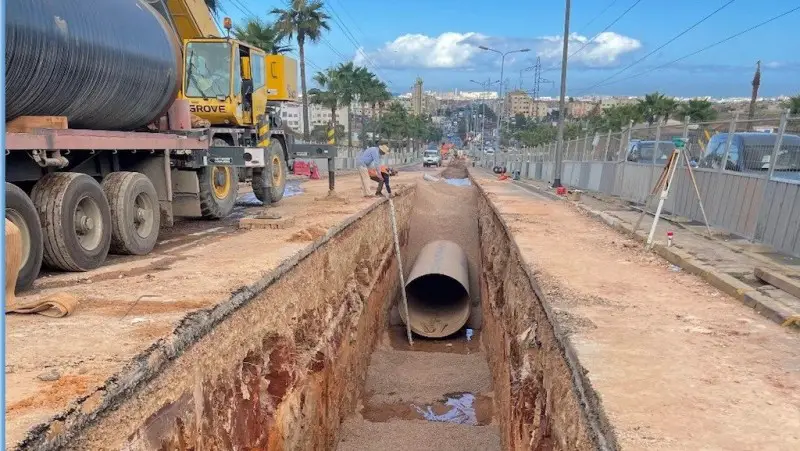An US$ 18M Casablanca drinking water supply project is planned in Morocco by the National Office of Electricity and Drinking Water (ONEE). According to ONEE, the first phase of the project aims to supply drinking water to the city from production facilities that purify water from the Sidi Mohamed Ben Abdellah dam.
The project, which is reportedly a part of Morocco’s National Program for Drinking Water Supply and Irrigation (PNAEPI) 2020–2027, which seeks to establish 120 dams by 2024, among other things, also puts emphasis on securing the drinking water supply to the southern zone of the city by constructing a hydraulic link between the north and south of the city to minimize the impact of the Oum Er Rbiaa basin water deficit.
Scope of the Casablanca drinking water supply project
Phase one of the supply of drinking water project involves the installation of a steel coated, two-meter diameter pipe of about 7.5 kilometres in length, connecting the already existing Bouregreg supply serving Casablanca’s north with the Mediouna distribution in Casablanca’s south.
Also Read: Agreement Signed for Construction of 7.8km Drinking Water Pipeline in Casablanca, Morocco
With an expected supply of 80 million cubic meters from Casablanca’s north to the south annually, the project will allow the supply of 1550 litres of water per second in its first phase of construction.
It is said that optimal management of the available water resources at the Sidi Mohamed Ben Abdellah dam and the Oum Er Rbiaa basin is ONEE’s aim in the first phase. The body is also constructing a booster station that is expected to raise the pipe’s capacity to 2500 litres each second for phase two of the project, with work commencing in June 2022.
Phase two of the project relates to the new pipeline’s extension to about 7.1 km, also to serve the Bouskoura reservoir, which is also set to strengthen the booster station by increasing the capacity to 4000 every second.
The second phase budget is estimated to cost $12 million and is expected to be commissioned in July 2023.

